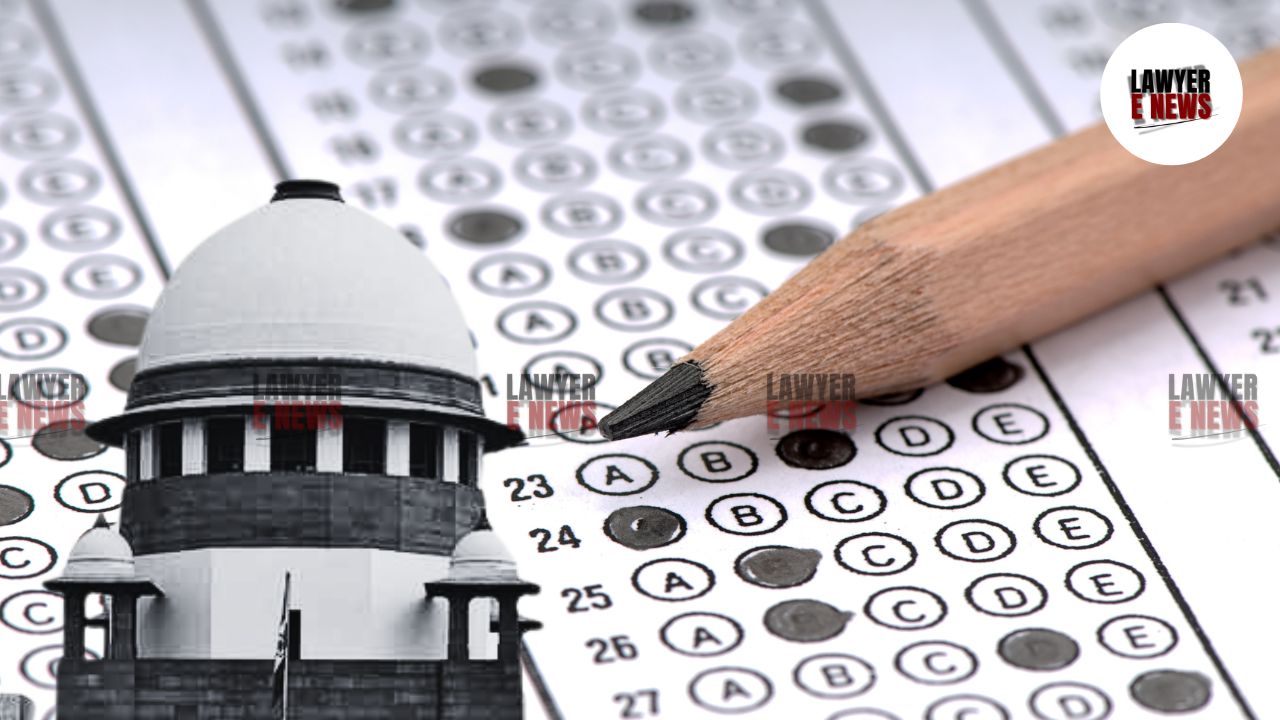-
by Admin
15 February 2026 2:36 AM



Supreme Court validates Rajasthan's teacher recruitment rules, confirming age relaxation and bonus marks for project-experienced candidates. The Supreme Court of India upheld the Rajasthan Panchayati Raj Prabodhak Service Rules, 2008, which grant age relaxation and bonus marks to candidates with experience in government educational projects. The ruling, delivered by Justices Surya Kant and K.V. Viswanathan, dismissed claims of discrimination and upheld the validity of the rules and the associated guidelines.
The case, Mahesh Chand Bareth & Anr. vs. State of Rajasthan & Ors., involved the challenge of candidates who were denied the benefits provided under the Rajasthan Panchayati Raj Prabodhak Service Rules, 2008. The appellants argued that the rules and guidelines were discriminatory as they favored candidates with experience in specific government educational projects, like the Shiksha Karmi Project, by providing age relaxation and additional bonus marks.
The appellants were aggrieved by the selection process for the post of "Prabodhak" (teacher), particularly the criteria for bonus marks and age relaxation for candidates with project experience, which they claimed was unconstitutional and violated Article 14 of the Constitution of India.
The Supreme Court emphasized the historical significance and success of educational projects such as the Shiksha Karmi Project, which aimed to improve education in remote rural areas of Rajasthan. These projects involved local youth who were trained to teach children in areas with no or dysfunctional formal schools.
"The Shiksha Karmi Project was instrumental in reaching out to children from disadvantaged communities and improving literacy rates. The experience gained in these projects is invaluable and relevant to the role of Prabodhaks," the court noted.
Addressing the age relaxation provision under Rule 13(v), the court found it justified. The rule states that candidates serving under educational projects would be considered within the age limit if they were initially engaged within the prescribed age limit, even if they had crossed the age limit at the time of direct recruitment.
"The historical background leading to the enactment of the rules itself provides a justification for granting relaxation to persons serving under educational projects," the court observed, emphasizing that the rule was neither arbitrary nor discriminatory.
The guidelines issued on May 27, 2008, before the advertisement for Prabodhak recruitment, outlined the criteria for awarding bonus marks. Candidates with project experience were awarded higher marks compared to others, recognizing their valuable experience in government educational projects.
"The executive guidelines only supplemented the rules and did not supplant them. The award of bonus marks is in line with the objective of leveraging the experience gained in educational projects to improve the quality of education," the court stated.
The court extensively discussed the principles of evaluating experience and qualifications in the recruitment process. It reiterated that policy decisions regarding age limits and bonus marks are within the purview of the government and are not arbitrary if they have a rational basis.
Justice Viswanathan remarked, "The experience gathered from project work stands on a higher pedestal because it is in tune with the nature of the work of Prabodhak. There is a valid classification based on intelligible differentia which distinguishes applicants with project experience from those who lack it."
The Supreme Court's dismissal of the appeals underscores the judiciary's recognition of the unique challenges and contributions of educational projects in rural Rajasthan. By affirming the rules and guidelines, the judgment reinforces the importance of relevant experience in the recruitment process and supports the state's efforts to improve education through targeted policies.
Date of Decision: July 8, 2024
Mahesh Chand Bareth & Anr. vs. State of Rajasthan & Ors.
